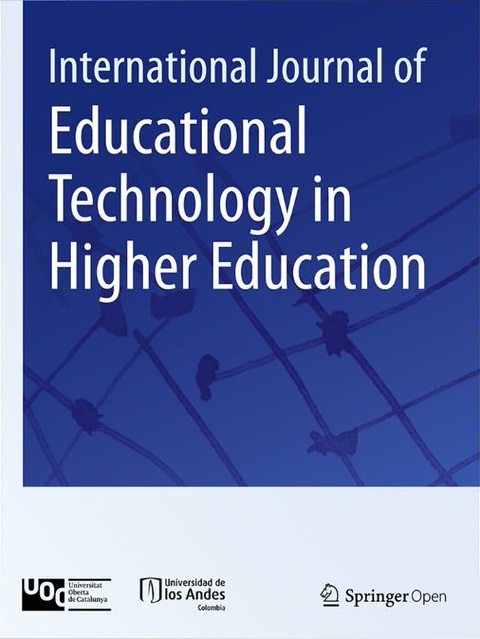游戏化:国际文凭教师的经验分享
IF 16.7
1区 教育学
Q1 EDUCATION & EDUCATIONAL RESEARCH
International Journal of Educational Technology in Higher Education
Pub Date : 2023-05-07
DOI:10.46328/ijte.375
引用次数: 0
摘要
随着教育环境的变化,吸引学生的注意力已经成为一个更加关键的问题。教育工作者必须找到创造性的方法和手段来吸引学生,让学习变得“有趣”。有大量的研究表明,游戏化可以用来推动学生的参与,成就,并加强对课堂行为的期望。这三个领域在国际文凭(IB)世界中一直很重要。在最近的执行摘要中,需要加强预期行为是一个值得注意的领域;教师们正在努力在日常课程中实施学习方法(ATL)。ATL技能包括沟通、自我管理和组织。Classcraft是一个游戏化系统,可以帮助强化这些技能,每天推动学业成功和学生参与。教师和大学级别的教授并未采用游戏化。这种担忧和抵制与时间、围绕游戏化的信念以及缺乏培训/知识有关。这个研究项目旨在揭示游戏化及其在课堂上的应用。通过一个混合方法的过程来衡量教师的经验,专业学习和实施的重要性被证明是教师采用的重要因素。本文章由计算机程序翻译,如有差异,请以英文原文为准。
Gamification: The Experiences of International Baccalaureate (IB) Teachers shared
With the changes in the educational landscape, holding students’ attention has become an even more crucial point. Educators are having to find creative ways and means to engage students and make learning ‘fun’. There have been numerous research studies to show that gamification can be used to drive student engagement, achievement, and reinforce expectations of classroom behavior. These three areas have been important in the International Baccalaureate (IB) world. The need for the reinforcement of expected behaviors has been a noted area in the most recent executive summary; teachers are struggling to implement Approaches to Learning (ATL) in their daily curriculum. ATL skills include communication, self-management, and organization. Classcraft, a gamification system, can help to reinforce these skills daily driving academic success and student engagement. Gamification is not being adopted by teachers and college-level professors. The concerns and resistance are connected to time, beliefs surrounding gamification, and lack of training/knowledge. This research project set out to shine more light on gamification and its implementation into the classroom. By measuring the experiences of teachers through a mixed-methods process, the importance of professional learning and implementation was shown to be important for teacher adoption.
求助全文
通过发布文献求助,成功后即可免费获取论文全文。
去求助
来源期刊
CiteScore
19.30
自引率
4.70%
发文量
59
审稿时长
76.7 days
期刊介绍:
This journal seeks to foster the sharing of critical scholarly works and information exchange across diverse cultural perspectives in the fields of technology-enhanced and digital learning in higher education. It aims to advance scientific knowledge on the human and personal aspects of technology use in higher education, while keeping readers informed about the latest developments in applying digital technologies to learning, training, research, and management.

 求助内容:
求助内容: 应助结果提醒方式:
应助结果提醒方式:


